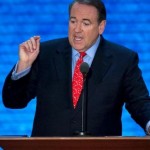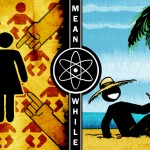Each week in “Under the Sun,” Jonathan Sircy examines the history of a cultural practice that’s generating buzz at CaPC.
The Chick-Fil-A kerfuffle has inspired so many smart, insightful pieces (the pieces by our own Alan Noble and Drew Dixon being good examples) that it feels like every angle has been examined five, six, or twenty-seven times. The thing I’ve learned from the best of these articles (Alan’s included) is that this chicken-flavored brouhaha is representative of the worst parts of this nation’s culture wars. That is, if you want to see how bad public discourse is in this country *right now,* simply plug “Chick-Fil-A” into Google.
I’d like to add a historical hypothesis to this insight: ten or twenty years hence, we will see the Chick-Fil-A uproar as the tipping point where the “boycotters” publicly assumed the position of the “buycotters.” I know that Christian groups have buycotted before, just like groups have previously boycotted businesses that promote anti-homosexual rhetoric. This felt different, however, as though some invisible pendulum had swung.
Mention “Chick-Fil-A” and “boycott” in a decade, and we’ll remember the social media torrent of messages and pictures in and around August 1, 2012. Then we’ll (probably) laugh and go eat a chicken sandwich. This future moment of nostalgic dismissal is important, however. This controversy shows, in Doctor Who parlance, that some basic cultural polarity has been reversed. It means that the same people who once made news with their public disapproval of Disney will now have to make do pledging their allegiance to businesses others have already condemned.
It seems appropriate, then, to revisit the eight-year—yes, eight-year—boycott the Southern Baptist Convention and other church groups levied against The Walt Disney Corporation because of its “anti-Christian and anti-family” policies. That moment is gone.
In 1997, activist consensus came via national conferences and FM radio rather than Facebook or Twitter. At that year’s annual meeting, the Southern Baptists publicly voted to boycott Disney, urging its members to withhold $100 that they would normally spend on Disney products or at Disney locations. Focus on the Family’s James Dobson called for his listeners to follow suit. Soon, members of the Assemblies of God and Presbyterian Church of America were on board.
There wasn’t a single reason for the boycott. It was a more of a convergence of issues. First, there was Disney-owned ABC sitcom Ellen with its lesbian lead character portrayed by its lesbian lead actress. Second, there was WDC’s employment policies, namely extending benefits to the same-sex partners of its employees. Third, there were the “Gay Days” sponsored by and held at the corporation’s popular theme parks. Fourth, there was the fact that the ostensibly family film company owned Miramax, which tended to produce its fair share of violent/profane/anti-family cinema.
Baptists were far from unanimous in their support for the boycott. Some were upset because they didn’t agree that homosexuality was a sin. Some were upset because they really liked The Lion King.
When it was all over, it wasn’t clear that Disney felt the economic repercussions of the boycott. The SBC’s decision to lift the ban coincided with the departure of much maligned CEO Michael Eisner. There’s little to suggest a causal link between the company’s profits either pre- or post-2005 and the boycott. The company certainly didn’t stopped offerings benefits to same-sex partners. The boycott is now something people name-check (see this Urban Faith article, which gets the reasons for the boycott wrong) but easily dismiss. It has become a byword for a particular moment in this country’s religious activism.
It’s certainly not like opportunities for boycotts have disappeared. If Chick-Fil-A patrons restaurant looked deep enough into their ice-cold lemonade yesterday, they could see ample opportunities to speak with their wallets instead of their poultry-filled mouths. Amazon, Microsoft, and Starbucks all publicly supported Washington state’s same-sex marriage bill. That’s the corporate trifecta, an opportunity to take your media, computer, and coffee-buying dollars elsewhere. Even though 1997 was only fifteen years ago, it seems like it hails from a different boycotting era. It’s hard to imagine the SBC issuing public economic sanctions against these three companies.
I understand why Rachel Held Evans insists that “it’s going to take a heck of a lot more effort than either eating or avoiding a chicken sandwich” to heal our cultural divide.
However, I think the unspoken reason why people showed up to Chick-Fil-A in droves yesterday is that they sensed that the day was important even if they couldn’t necessarily articulate why. Their side was no longer dictating policy. Their position had irreparably changed. They were there to pour out a 40 oz. lemonade and—at least figuratively—proclaim, “I participated in a cultural tipping point, and all I got were these delicious waffle fries.”










